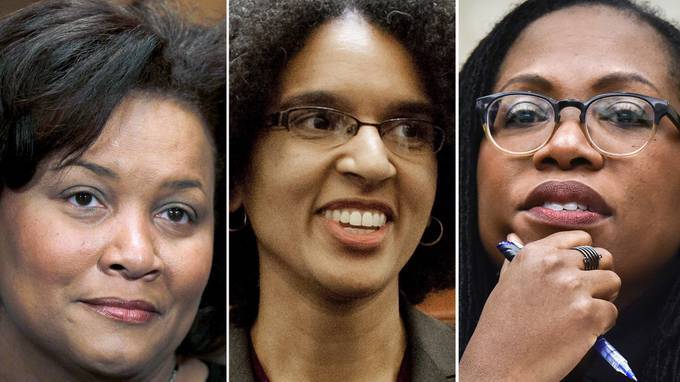| A while back, when I worked for another news organization, I was listening to a discussion at a staff meeting about plans to increase diversity in the newsroom. "But we have to be careful not to lower standards," piped up a White male colleague. Why, I asked, did he assume managers would hire unqualified journalists of color? He didn't respond. After the meeting I asked him where was his concern when some of our obviously incompetent or mediocre White colleagues were hired? Another time, a different White male colleague alleged that a Black woman "took my job" at a rival news outlet. How, I asked, did he know that it was his job that had been snatched by this brazen thief? He said the hiring editor had told him that her hands were tied and she had to take the Black candidate. These conversations happened many years ago, but they are similar to the comments over the past two weeks by Republicans about President Biden's as-yet-unnamed Black female nominee to the Supreme Court. Interestingly, some conservative critics have tweaked the trope, suggesting that Biden's promise to nominate the first Black female justice was unfair not only to White people, but to Asians and Latinos as well. Supporters of Biden's efforts to bring more diversity to the nation's highest court note that no such warnings were issued or concerns voiced when President Donald Trump filled three Supreme Court seats with White judges, or when he followed through on his promise to name a woman to the court to replace Justice Ruth Bader Ginsburg. This suggests that Republicans and conservatives thought gender diversity was only important for replacing a White woman, and racial or ethnic diversity was not important at all — until now. Even if a Black woman is confirmed and seated on the court, six of its nine members — a clear majority — will still be White. Just like the newsrooms of the country's mainstream news media, including The Washington Post. As the nation waits for Biden to announce his choice, our colleagues have written mini-profiles about the top three candidates, to give readers a better sense of who these women are as professionals and as individuals. Thank you for reading.  From left, Judge J. Michelle Childs, California Supreme Court Justice Leondra Kruger and Judge Ketanji Brown Jackson. (Charles Dharapak/AP; Todd Rogers/AP; Bill O'Leary/The Washington Post) | |
Comments
Post a Comment